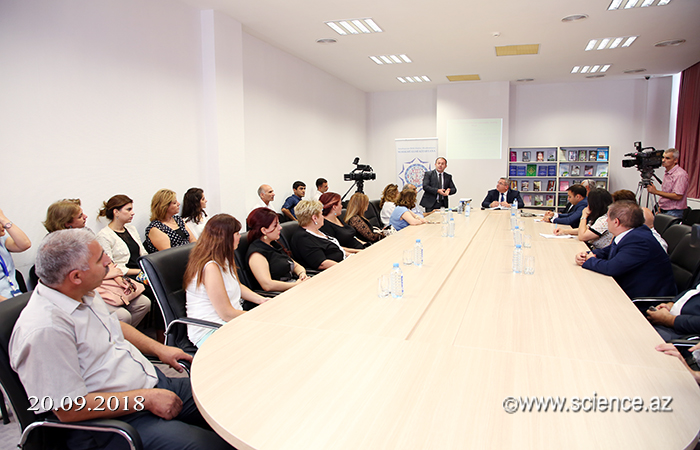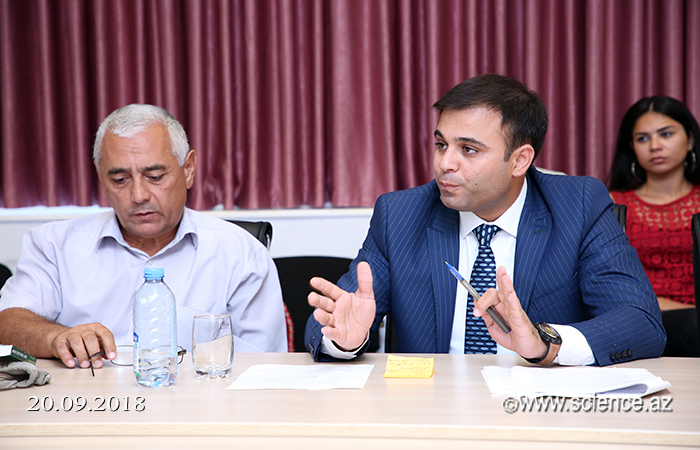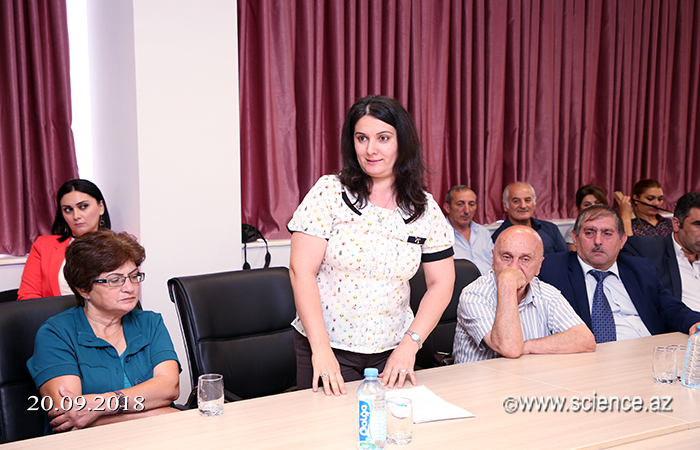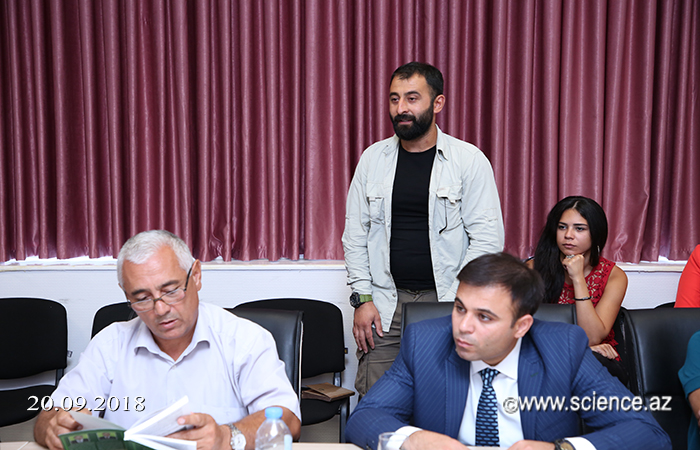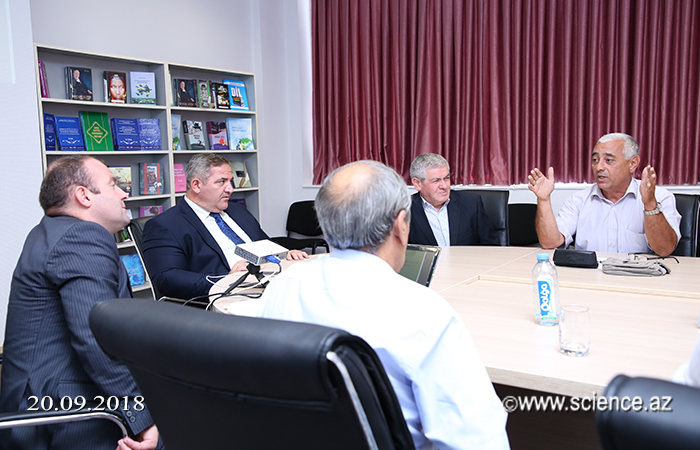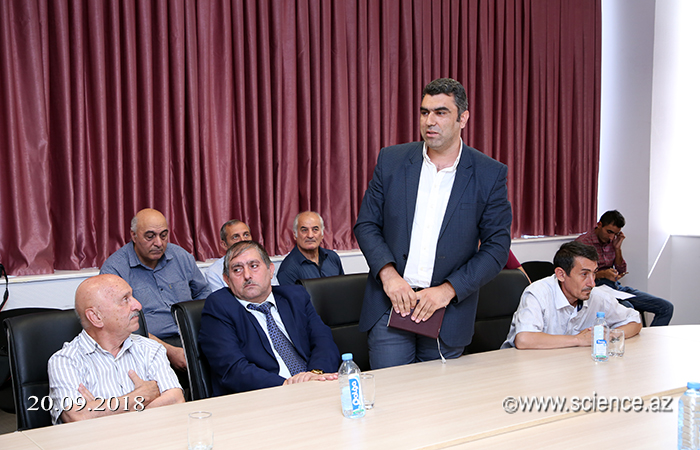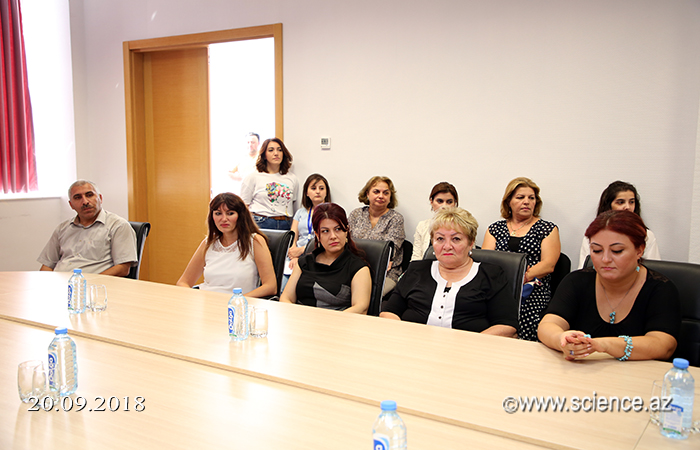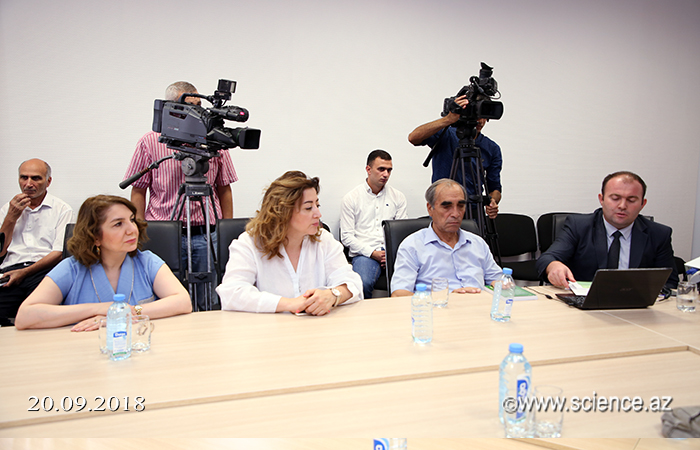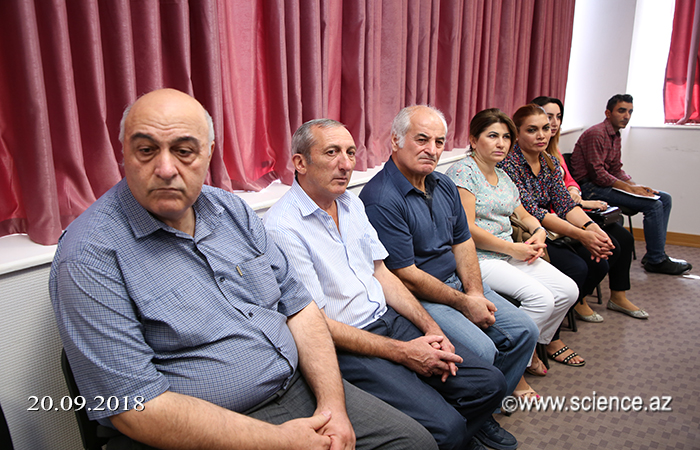- A-
- A
- A+
A scientific seminar on "Searching for meaning in folklore: methodological approaches, ideological view and socio-cultural stereotypes" held
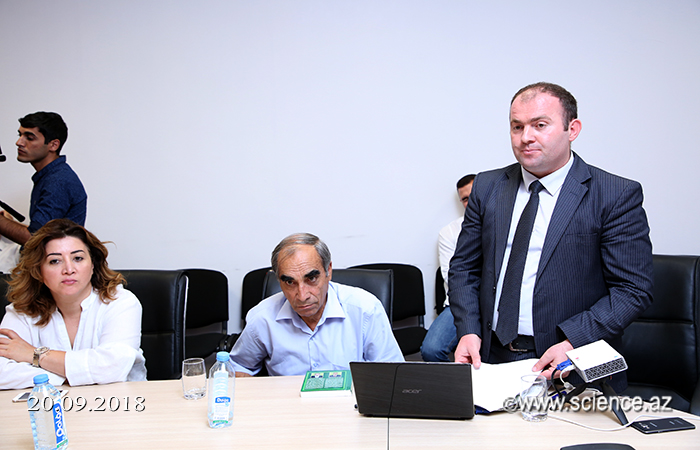
ANAS Central Scientific Library, by the support of the Institute of Folklore held scientific seminar on "Searching for meaning in folklore: methodological approaches, ideological views and socio-cultural stereotypes" by Ph.D. in Philology Safa Garayev on September 20. Employees of the Institute of Folklore of ANAS, pedagogical and student groups of higher educational institutions of the republic, doctoral candidates and dissertators, representatives of the mass media took part at the seminar.
Opening the event, ANAS Presidium scientific secretary, Ph.D. in Philology Sarkhan Khaveri spoke about the research conducted by S.Garayev in recent years. He noted that, the speaker is the author of important original research and works related to the trends in the development of world folklore studies and which led to scientific discussions. Stressing the relevance of the report, S.Khaveri added that, the abstracts reflecting the topic of the seminar were prepared after discussion with US scientists on a global scale.
Then, Safa Garayev delivered scientific report. In his speech, he noted that, in recent years one of the topical scientific directions of world folklore studies is the semantic concept in folklore: "Some aspects of the" semantic concept, "which constantly change depending on theoretical schools, methodological views and social processes, have been studied by such prominent researchers like Alan Dundes, Elliot Ohring, Simon Bronner, Bengt Holbec, Lutz Roerich. Given the general trends in the development of world folklore studies at the present stage, it is necessary to update this problem in the domestic folklore studies. For a deeper study of various aspects of various scientific problems that are studied by folklorologists, the "semantic concept" has a special significance, since in the process of collective communication, the correspondence of a folklore fact with the interests of social groups and individuals is directly related to the flexible semantic dynamics contained in it ".
S. Garayev said that, the concept of "meaning" in folklore can be considered from three aspects: the semantic concept in culture itself, the semantic concept in the context of the philosophical-psychological approach and the semantic concept discovered by researchers on the basis of discoveries or interpretations. He also spoke about the differences in approaches that make themselves felt during the "search for meaning" in the folkloric fact.
Then, S.Garayev said that, researchers representing different schools tried to determine the meaning of the folklore fact using the main four methods. The first group includes scientists who want to reveal the meaning of the text by reconstructing historical development and original form. The second group includes scientists trying to find meaning, based on the social and cultural level of the narrator and the audience. The third group embraces researchers who want to find meaning in the folkloric fact through the study of consciousness. The fourth group includes scientists who try to find meaning from narrative or conceptual structure.
Touching upon the specific nature of the ethical and empirical approaches in studying the meaning of folkloric facts, S.Garayev noted that, the ethical approach presupposes the study of meanings in the context of the views of researchers and observers. At this time, cultural facts are analyzed on the basis of scientific terms and theoretical views of the observer.
The empirical approach is the study of meanings in the context of the views and approaches of their own "actors". Considering the recent studies in the field of anthropology and folklore studies, it can be concluded that more effective conduct of scientific research is possible with the balance remaining between these two approaches.
Further, S.Garayev emphasized the importance of systematic consideration of such factors as the "mirror of culture", the "eyes of society", the "key of behavior", the "projection of consciousness", which determine the perception of folkloric meaning possessing multiple parameters. Paying attention to the fact that the meanings in folklore depend on individual factors, group interests, the fundamental status and the context of the performance, the reporter noted that the same folklore fact is conditioned by the historical period, including the interests of various social groups.
As an illustrative example, the scientist cited the "Legend of Master Manole" which is widely distributed in Europe and is attracted to research in the context of various approaches. The reporter said that the legend has always been in the center of attention of representatives of nationalist views, ritualistic approaches and metaphorical-psychological readings.
Then, as an example of discovering the meaning on the basis of metaphorically symbolic reading, taking into account the socio-cultural context widely-spread texts of the beliefs and legends "On the seven brothers-snakes" on the territory of Azerbaijan.
In conclusion, Safa Garayev responded the questions of the folklore specialists connected with the raised scientific problem. Around the report, discussions were took place.
In his speeches the scientific secretary of the Presidium of ANAS Hikmet Guliyev, Doctor of Philology Seifaddin Ganiev, Ph.D. in Philology Ilkin Rustamzadeh and others emphasized the relevance of the topic, its significance in terms of challenges of modern science and the need to continue research in this field.
©All rights are reserved. Citing to www.science.gov.az is necessary upon using news.
Similar News
Links
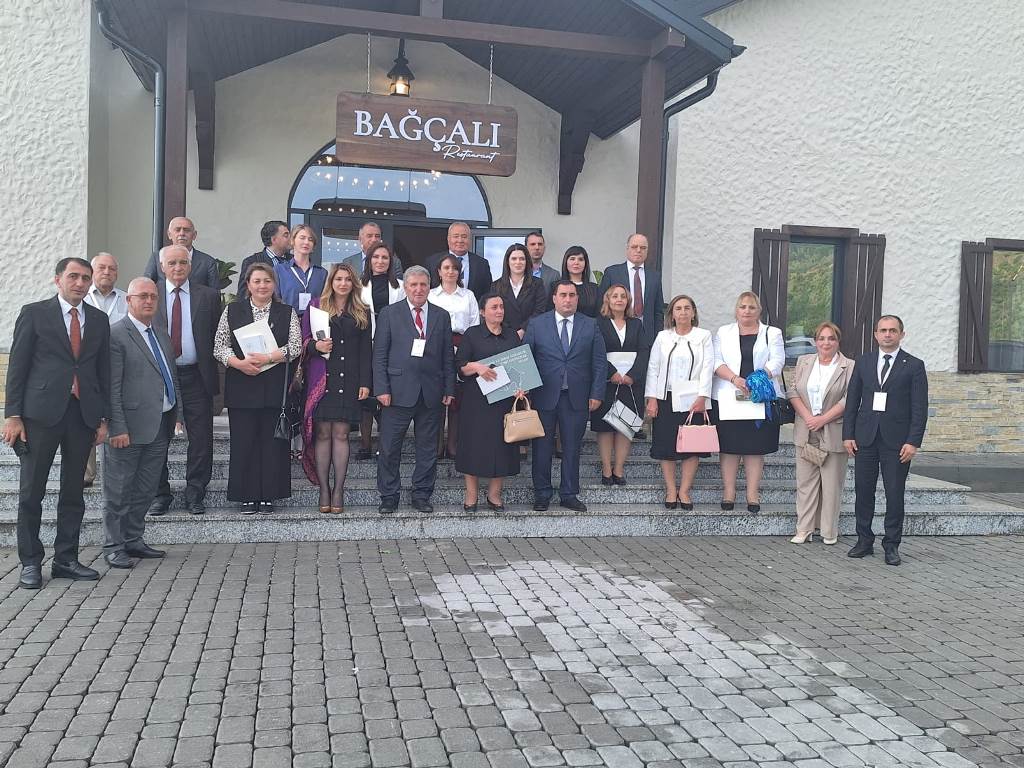

 Elm TV
Elm TV
 Photo
Photo
 Video
Video
